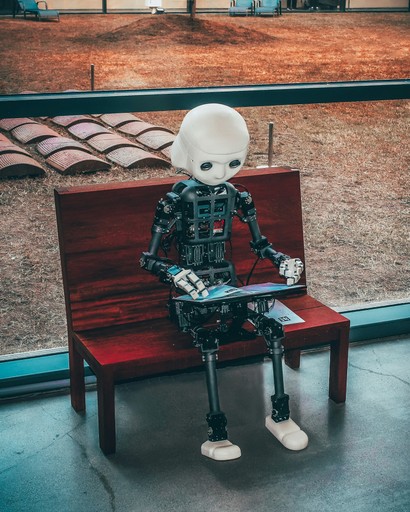What Can AI Not Do (Yet)? The Surprising Shortfalls of Silicon Sapiens
May 9, 2024

Artificial intelligence has made remarkable strides, transforming industries and daily life with its capabilities in data processing, pattern recognition, and executing predefined tasks. However, the notion of AI possessing boundless prowess is, at present, part of science fiction rather than reality. It navigates a world filled with nuances and complexities that, more often than not, require a human touch or what is deemed 'common sense' – a trait that AI, with all its bits and bytes, finds rather elusive. Despite its algorithms and neural networks, AI has yet to master the art of decoding the intricacies of human behavior, emotions, and the grey areas that define our interactions and decisions.
Current AI systems excel in specialized and highly structured roles, performing specific tasks with impressive efficiency. Nevertheless, they are not universal problem-solvers. They can't emulate the cognitive flexibility that humans apply to a wide range of challenges on a day-to-day basis. This leaves room for improvement before we see AI in unequivocally human-like roles, filling shoes that to date only a person could. Until AI systems can fathom causality and context with the flair of human intuition, they will remain impressive but ultimately limited assistants in the complex tapestry of life.
Key Takeaways
AI is transformative yet falls short in applying common sense, much to the amusement of its human creators.
Task-specific efficiency is AI's forte, while general problem-solving remains on its 'to-learn' list.
Human-like roles for AI are, for now, more of a fantasy than an imminent reality, entertaining as the prospect might be.
Inherent Limitations of Current AI
Despite the astonishing advancements in artificial intelligence, current AI systems show a distinct lack of what parents call 'using your noggin'. Let's peel back the circuit curtain and have a chuckle at what today's AI cannot yet manage.
Lack of Common Sense
Current AI, even with all its bits and bytes, often lacks what humans refer to as common sense. If you tell a neural network about a man going to a restaurant and leaving a big tip, don't expect it to realize the steak was his meal and not his dining partner. The CYC project, a long-term endeavor, has been chipping away at this problem by trying to teach machines common-sense reasoning, but it seems we're still a bit away from machines understanding not to bring a knife to a pillow fight.
Struggles with Creativity and Generalization
Creativity, that magical human spark, is something machines find as befuddling as a cat does a bathtub. Machine learning algorithms are brilliant at specific tasks, but ask them to think outside the proverbial box and you'll find them flummoxed. A researcher like Gary Marcus will tell you that while AI can learn to recognize patterns, dreaming up a work of art or applying knowledge across varied situations is still a road less traveled for our logic-bound friends.
Causality vs. Correlation Confusion
Finally, let's wade into the mire of causation and correlation—two terms that AI often mixes up like socks in a dark drawer. Despite advances in machine learning, discerning causation from mere correlation is a veritable brain-buster for AI. Thought leaders like Judea Pearl have highlighted this issue, suggesting that without an understanding of causality, AI can no more deduce the why of events than a toddler can the tax code.
AI in Human-Like Roles: A Distant Dream?
It's one thing for AI to master 'Go', quite another to tackle a tearjerker of a rom-com script. While infatuation with AI capabilities grows, they're not exactly ready to write wedding vows or crack the next viral joke.
Understanding Human Values and Empathy
AI systems, like language models, are fantastic at crunching data and spitting out human-like text. However, understanding and embodying human values and empathy is akin to teaching a fish to climb a tree—they're just not built for it. For AI to truly grasp values, it would need to navigate the complex tapestry of human culture—and let's just say it's still getting its proverbial feet wet. Tapping into emotion and nuanced empathy? Well, that's still AI's 'to-do' list.
The Challenges of Autonomous Innovation
When it comes to innovation, AI's got chops in optimization and pattern recognition. But autonomous innovation, the kind that reshapes the world, remains a human domain. While they can churn out iterations faster than a caffeinated inventor, one might argue they're remixing, not creating from scratch. True innovation—the kind that comes with "eureka" moments in a steamy bath or the apple-falling-on-Newton's-head incidents—is a human quirk AI has yet to emulate.
AI as Artists and Authors
AI dabbling in the arts is like a toddler's abstract finger painting—cute, but not quite museum-worthy. They can mimic human creativity well enough to compose music or draft up a story. Yet, they still struggle to captivate a soul with original stories and writing imbued with the kind of human touch that tickles the funny bone or pulls at heartstrings. Humor—especially the subtle, cultural kind—is a tough nut to crack, and though AI might be the brainy sort, they're not quite the class clown.
Contact
Want understand how your business can benefit from the AI revolution?